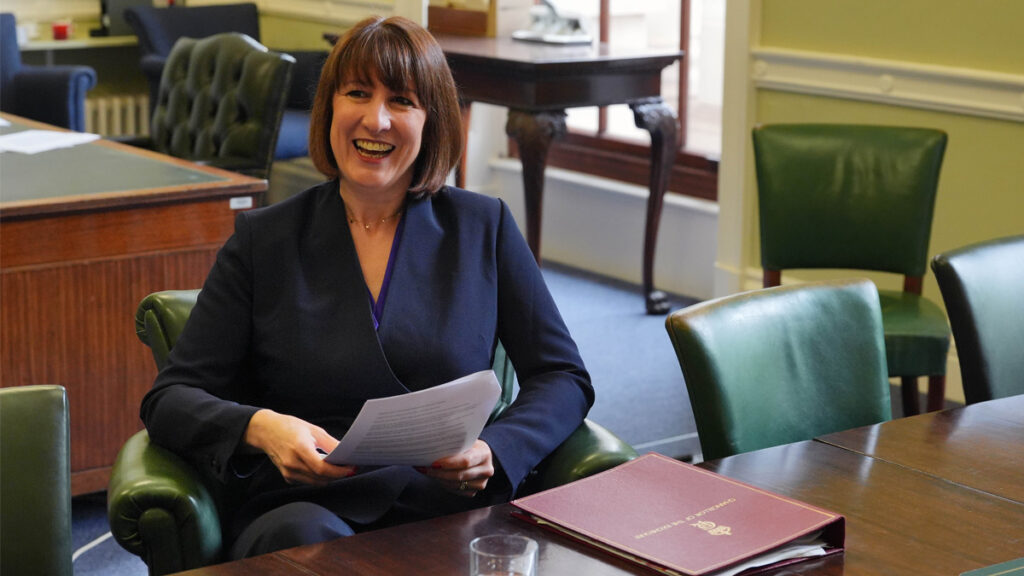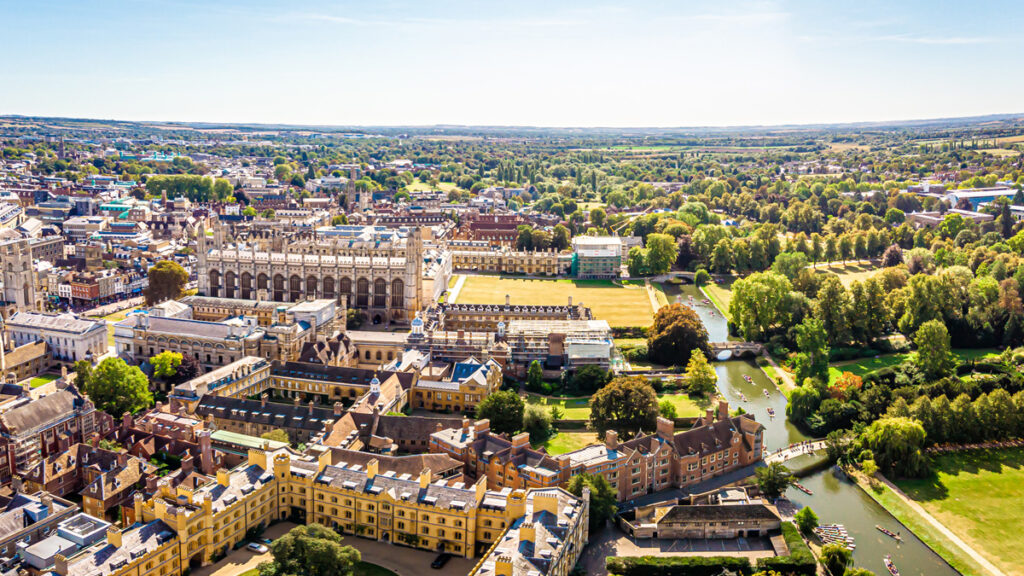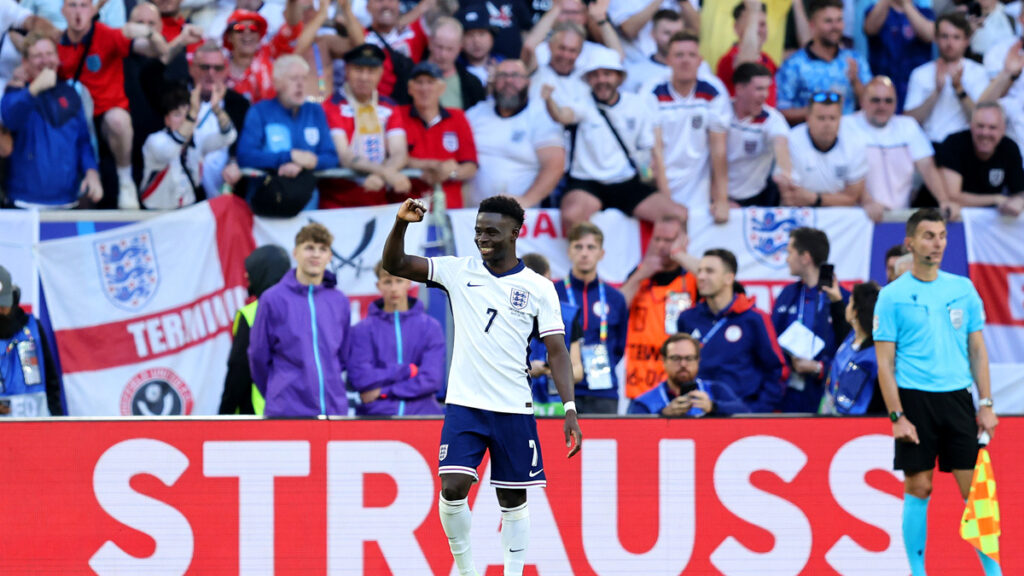Labour’s ‘difficult’ economic decisions
Plus, low exec pay risks a US talent drain, Carlsberg acquires Britvic and is this the end of levelling up?
 (Image: Jonathan Brady - Pool/Getty Images)
(Image: Jonathan Brady - Pool/Getty Images)
This article is an online version of our Off to Lunch newsletter. Sign up to receive it straight to your inbox here.
We are entering the first full week under the new Labour government and Rachel Reeves has set the tone in her first speech to business leaders as chancellor. Reeves says she will have to “make difficult decisions” and that economic growth is now a national mission.
The chancellor revealed new Treasury analysis that the UK economy is £140bn smaller than if it had grown at the same rate as other OECD economies. Delivered to an audience of investors, financial services chiefs and green industry leaders, she said: “This could have brought in an additional £58bn in tax revenues last year alone to sustain our public services. It falls to this new government to fix the foundations.”
Confidence in the new government’s bold housing planning reform pledge saw the share prices of UK housebuilders rise on Friday and more plans may be in the pipeline. Labour ran an ironically conservative campaign void of many details but is expected to deliver a “policy blitz” to make sure they meet their manifesto target of building 1.5 million homes in the next five years. The party hope this will coax tens of billions of pounds of investment in housebuilding and green industry.
One change that is almost immediate is that the ‘levelling up’ slogan that was so loved under a Boris Johnson administration will be dropped. An insider told The Guardian: “We agree with the principle of levelling up, but it was a gimmicky branding exercise. We’ll be taking the Ronseal approach. It will do what it says on the tin.” The former levelling up, housing and communities department is expected to regain its previous name of housing, communities and local government.
Sir Keir Starmer made headlines on the eve of the election saying that Britain will not rejoin the EU in his lifetime. Darren Jones, new chief secretary to the Treasury, has doubled down on Starmer’s promise but has told BBC Radio 4’s Today programme: “We do think there is room to improve the relationship in a pragmatic way.” Time will tell what that looks like.

Elsewhere, the four-day work week is a conversation that has been bubbling away for years now. While the private sector is firmly segmented into believers and sceptics, South Cambridgeshire district council has concluded a 15-month four-day work week trial run by academics at the University of Cambridge and the University of Salford and had notable results.
The trail became a political hot potato, with the local Liberal Democrat-controlled authority coming under attack from the ruling Tory government, with one MP claiming the trail was “an ideological crusade”.
The multi-year study of the trial involving about 450 desk staff and refuse collectors found:
- Staff turnover fell by 39 per cent, helping save £371,500 in a year, mostly on agency staff costs
- Regular household planning applications were decided about a week and a half earlier
- Approximately 15 per cent more major planning application decisions were completed within the correct timescale, compared to before
- The time taken to process changes to housing benefit and council tax benefit claims fell
It wasn’t all positive though as rent collection for council housing worsened and the speed with which empty council houses were relet fell too.
You can read more about it in The Guardian here.
Business Question
What is the maximum fine that can be imposed under GDPR for serious data breaches?
A. £14.5m or 3 per cent of annual global turnover
B. £17.5m or 4 per cent of annual global turnover
C. £20.5m or 4 per cent of annual global turnover
D. £21.5m or 5 per cent of annual global turnover
The answer can be found at the bottom of the page.
Business in Brief
Everything you need to know
1. Lower executive pay in the UK risks a “drain of talent to America”. Schroders, the investment group that oversees about £760bn of assets, analysed the pay packages handed to 2,353 chief executives in Britain and America and found that UK bosses were paid one fifth of the money earned by their US peers. You can read more here.
2. Carlsberg has agreed to a £3.3bn acquisition of Britvic, whose brands include Robinsons and Fruit Shoot. The agreement comes after the soft drink maker rejected two earlier bids. The deal will allow the Danish brewer to expand its drinks bottling operations in the UK. You can read more here.
3. Eon UK has returned to profit for the first time since 2020 after a swing of more than £700m. The division has posted a pre-tax profit of £49m for 2023, according to newly filed accounts with Companies House, up from a loss of £659m. You can read more here.
4. Administrators of failed investment business Fortress Capital Partners have labelled it a Ponzi scheme. It was an unregulated investment scheme that promoted returns of up to 18 per cent a year until it collapsed into administration last September. You can read more here.
5. Data from aviation analytics company Cirium has found that British Airways has cancelled 4,033 flights from UK airports over the past year, nearly double that of low-cost rival easyJet. However, BA bosses point to recent operational improvements. Just 60 per cent of flights departed or arrived within 15 minutes of their scheduled time last year. This improved to 80 per cent of flights by the spring following the changes at Heathrow. You can read more here.
Business Quotes
Inspiration from leaders
“I would rather get it right than be right”
– Unknown
Business Thinker
Ideas on the future of business and leadership
1. ? How fried chicken took over the British high street ?
2. ? The Tories’ next big move will lead to either recovery or extinction ?
3. ✈️ New Pan Am soars, reviving the golden age of air travel ✈️
And finally…

England squeaked through to the semi-final of the Euros by beating Switzerland on penalties on Saturday evening. After falling behind with 15 minutes to play, the Three Lions were bailed out by a stunning goal from Bukayo Saka, who also scored one of the penalties to seal the tie.
Saka has had his fair share of ups and downs in football despite still only being 22. Most notably, he was one of the players that missed a penalty in the Euro 2020 final against Italy. What followed was a barrage of racist abuse and hate. While we are still witnessing the writing of his story, watching him slot that penalty on Saturday was oh-so-sweet.
The Times has done a brilliant deep dive into Saka and his upbringing. You can read it here.
The answer to today’s Business Question is B. £17.5m or 4 per cent of annual global turnover.



